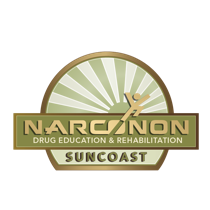Why Addicts Return to Drugs: The Underlying Problem

Trying to kick a bad habit can be huge for people struggling with drug addiction. It can be even harder for those trying to help a loved one who can’t seem to stop. Many who take illegal or prescription drugs cycle in and out of rehab programs only to find themselves back where they started. This seemingly endless cycle may leave loved ones wondering why these programs fail to achieve long-term success.
Addicts must tackle the root cause that drove them to drugs to achieve lasting sobriety. Most rehab facilities can help individuals abstain from drugs for a time and physically detox. They do not teach life skills. When a recovering person returns to their home environment, nothing changes externally. The person may be sober now, but their living situation is often still filled with stressors and negative influences they do not know how to handle. Reverting to drugs is their way of trying to cope.
Why Do People Take Drugs?
For those caring for an addicted individual, understanding the reasons a person starts to take drugs in the first place can help ensure they make a complete recovery after rehab:
- Stress: Stress can mean a lot of things to different people. Usually, it is an overwhelming sense of anxiety brought on by seemingly unsolvable problems. This could be related to family, money issues, pressure on the job, or difficult social settings. Wherever it comes from, when the challenges seem too big, it can cause some to turn to drugs to mask the mental feeling of agitation. Unfortunately, the real-life issues are usually only made worse by the additional problems brought on by drug use.
- Pain: Lots of people take prescription medication for perfectly real and justifiable reasons. It’s when this prescription is overdone that problems result. While fingers may be pointed at the doctor, the patient, or whoever for increased tolerance to the medication, the point is that it can lead to the need to take a higher dose to obtain the same level of relief. When this gets out of hand, everyday people find themselves locked in a terrible cycle of trying to obtain relief and escape the pain of withdrawal.
- False Information: We’ve all seen or heard something like this before. Young adults or teens at a party get told that “One hit won’t hurt,” or “It’s natural,” or “You can stop taking it whenever you want,” only to find out later that they seemingly can’t live without chasing that last high one more time.
- Negative People: No matter where you are in life, there will always be people who are jealous of your success or who wish to squash your hopes and dreams to achieve what they think is a better position for themselves. In some cases, these types of people, who often pose as “friends” telling you what to do “for your own good,” can lead one to continue making bad choices in life despite one’s true intentions.
Narconon Suncoast: Handling the Root of Addiction
By first addressing an individual’s physical dependency on harmful substances, one makes it possible to handle the root of addiction. The Narconon program does not stop after the person has dried out or is no longer abusing. It addresses the reasons a person turned to drugs in the first place.
One unique component of the Narconon program is a series of Life Skills Courses aimed at setting up individuals for long-term success. These courses focus on building stability, self-respect, and restoring personal values. By learning how to deal with negative people, how to take responsibility for past actions, and developing effective problem-solving skills, Narconon graduates are enabled to manage challenges in real life without turning to drugs.
Break the Repetitive Cycle for Good
Life skills are the missing component that can break the repetitive rehab cycle, as thousands of Narconon graduates can attest. Contact Narconon today to see how we can help you or your loved one overcome addiction and become drug-free for good.
Source:
Link to Narconon Program Components: https://www.narconon-suncoast.org/about-narconon/program-components.html


